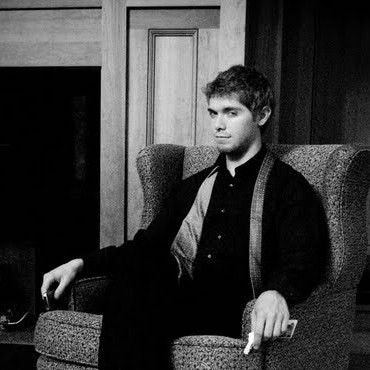Alumni Profile: Ian Feis-Bryce BA ’11
Open gallery

Ian Feis-Bryce BA ’11
Major: Psychology, gender studies
Hometown: Mount Vernon, Washington
Can you tell us a bit about your role at Survivors Manchester?
In 2006, the United Kingdom government commissioned a new role titled independent sexual violence advisor (ISVA) to work in the voluntary sector supporting survivors of sexual violence. The ISVA role was developed after some serious case reviews highlighted the difficulties facing survivors of rape, sexual assault, and childhood sexual exploitation with engaging with the criminal justice system, specifically making reports to police and being cross-examined in court (victim blaming).
The role is designed to case manage and support survivors in every aspect of their lives from substance misuse, housing, mental health, and ultimately, if they so wish, to make formal reports to the police in an attempt to obtain criminal justice outcomes, which can be crucial for some peoples’ recovery.
Since 2006, the vast majority of ISVAs have exclusively supported female survivors with a handful of ISVAs providing services to males as well. My role within Survivors Manchester is to be the first male specialist ISVA in the UK. No one experiences sexual violence in the same way. My clients are incredibly diverse: some are gay, some are straight, some have experienced violence from women and some from men. What’s unfortunate is how many men remain silent about their abuse for years because mainstream structures of support don’t believe men can be raped and these organizations often turn away men seeking help. I believe every survivor deserves to be believed and to obtain justice, and I will campaign, scream, and shout until we have a better system to ensure survivors’ voices are heard, whether they be male or female.
How did your time at Lewis & Clark help shape your interest in working on social justice issues? What skills did you learn at Lewis & Clark that you’re bringing to your new role?
Lewis & Clark was extremely supportive of my interest in social justice and provided me with many opportunities to develop and nurture my passion. In my first year, I worked with the Center for Career and Community Engagement (now the Office of Student Leadership and Service), to colead the alternative spring break trip to San Francisco. I took a group of 10 students to San Francisco to volunteer for more than a week with different organizations supporting people living with HIV/AIDS.
A year later, Lewis & Clark was instrumental in helping me secure a summer internship with Lambda Legal in New York City, which is the nation’s oldest and largest LGBT civil rights law firms (they won the notorious Lawrence vs. Texas Supreme Court case striking down sodomy laws). I interned on the youth out-of-home care project supporting and advocating for LGBT homeless young people and those who were living in state care, specifically trans-female young people living in all-male residencies who were placed in care based on biological sex rather than their lived gender identity. This is where I first encountered institutional prejudice, abuse, and discrimination, which quickly became my fierce passion to alleviate.
What’s brilliant about Lewis & Clark’s philosophy is that my extracurricular experiences were intertwined into studies. Professors allowed me to incorporate my interests into the coursework, and in essence create my own personalized education. Lewis & Clark provided me with the support and opportunities to become a critical thinker with the confidence and ability to challenge institutions of power and represent the rights of stigmatized groups.
How did your Lewis & Clark study abroad program contribute to your current career path and understanding of the world?
Up until my semester abroad, I had never left the country. In my junior year, I was fortunate to study abroad in London and intern with the Albert Kennedy Trust, a United Kingdom charity supporting homeless LGBT young people. I interned as a campaigning officer, and it was my task to raise the charity’s profile within the Houses of Parliament and lobby members of Parliament to address the distress felt by homeless LGBT young people. This required me to immerse myself into a new political landscape, learn the LGBT rights movement of a different country, and come to grips with a completely different style of government. I had no idea at this time that I would become the first male specialist ISVA in the United Kingdom; however, it did instill a love for Britain.
Is there anything else you’d like to say to current or future Lewis & Clark students? Any advice for graduating seniors getting ready to enter the workforce?
My advice for current Pios would be to take advantage of the time you have and develop a passion or an ideology. You are going to leave Lewis & Clark with a degree, and that’s an amazing achievement in itself; however, so are so many other people in the country. What is going to make you stand out and create opportunities for you, in my opinion, is your passion and experiences.
Lastly, college is a tough time where lots of change is happening in your life. It’s a particularly unstable time. College students are a high risk group for experiencing sexual violence, and I urge you, if you have experienced anything you are uncomfortable with, don’t accept it as normal, and don’t blame yourself. Seek out support and help. Lewis & Clark has a lot of confidential services available to you.
NOTE: Campus resources available to students include the Office of Health Promotion and Wellness, Feminist Student Union, and Campus Living.
Psychology Department Gender Studies Student Leadership and Service Career Development
More Newsroom Stories
Public Relations is located in McAfee on the Undergraduate Campus.
MSC: 19
email public@lclark.edu
voice 503-768-7970
Public Relations
Lewis & Clark
615 S. Palatine Hill Road MSC 19
Portland OR 97219

